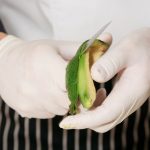Divert breaks ground in Washington
Divert Inc. broke ground in Longview, WA, Sept. 7 as the first step for its Integrated Diversion & Energy Facility. This is the first-of-its-kind in the state.
Divert is based in Concord, MA. The company’s objective is to minimize food waste and convert wasted food into a renewable energy resource instead of being a source of methane seeping from landfills. Divert has ten highly sophisticated operations around the country. These serve 50 states. Customers include Ahold Delhaize, Albertsons, CVS, Kroger, and Target. Divert works with these customers providing technology, logistics and anaerobic digestion facilities to help these retailers reach their sustainability goals.
The Sept. 7 introduction ceremony and classic groundbreaking was broadcast online, with CEO and co-founder Ryan Begin moderating. Begin and Nick Whitman, COO, started the company in a Massachusetts garage in 2007.
According to Divert, the new facility will process wasted food into carbon negative renewable energy. This facility represents the first wholly new clean technology and clean manufacturing-focused facility approved under Washington’s stringent environmental protection framework (SEPA) in Southwest Washington in the last decade.
Located near the Columbia River in Longview’s Mint Farm industrial development park, Divert’s new operation will be 66,000 square feet, located on 16 acres. It will employ 40 people upon its completion at the end of 2024.
It will process 100,000 tons of food, which will offset up to 23,000 metric tons of CO2 a year at full processing capacity. This is equivalent to removing 5,000 gas-powered cars from the road annually.
Divert explains that Longview is a key transportation nexus for the Pacific Northwest. It has central proximity to Divert retail customers’ Washington and Oregon distribution centers.
It also offers proximity to utilities capable of receiving carbon negative renewable energy.
Customers of the Longview Facility will include food retailers, as well as industrial partners and manufacturers, among others.
Divert is making carbon negative energy out of unsold food that would otherwise be emitting harmful methane in a landfill.
The company is also recovering water from food that would otherwise end up as hazardous leachate in the landfill. In addition, the Longview facility will help customers comply with Washington State’s HB 1799, which requires large wasted-food generators to divert wasted food from landfills through donation, composting, or clean energy creation. It encourages the use of anaerobic digestion to manage organic materials diverted from landfills. By 2025, the amount of edible food wasted in landfill disposal must be reduced by 20%.
The Longview area is a major industrial region, housing industry that utilizes vast amounts of energy. This facility will also help the region decarbonize, by providing hard to electrify manufacturing industries access to carbon negative renewable natural gas (RNG). After the facility is completed and the site has started receiving and processing wasted food, the timeline to produce renewable natural gas for the pipeline will be about four to six weeks.
Through an interconnection agreement with Cascade Natural Gas, the processed RNG will go directly into the existing distribution pipeline, replacing fossil fuel gas with renewable energy to supply homes, businesses, and hard to electrify industries. The development of this facility will bring Divert closer to delivering on its commitment to expand to 30 facilities across the U.S. to be within 100 miles of 80% of the population by 2031.
Divert and Enbridge
This is the first facility in development in Divert and Enbridge's $1 billion infrastructure development agreement, announced earlier this year. Divert and Enbridge are investing nearly $100 million in the project and the local economy.
According to the website of Enbridge Inc., “Enbridge Gas is North America's largest natural gas utility by volume, delivering affordable energy now, and well into the future.”
The Wasted Food Landscape
Divert indicates that today, the U.S. alone generates more than 63 million tons of wasted food annually. Wasted food contributes 8% to 10% of global greenhouse gas emissions. Divert is tackling these crises by delivering immense progress towards eliminating wasted food through its unique solutions – from converting wasted food into renewable fuels to feeding those in need.














































